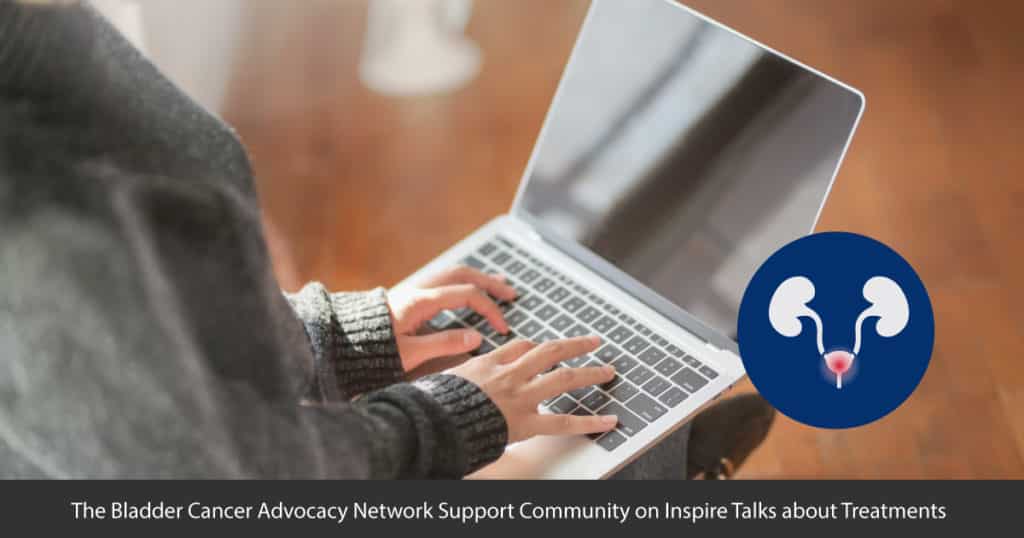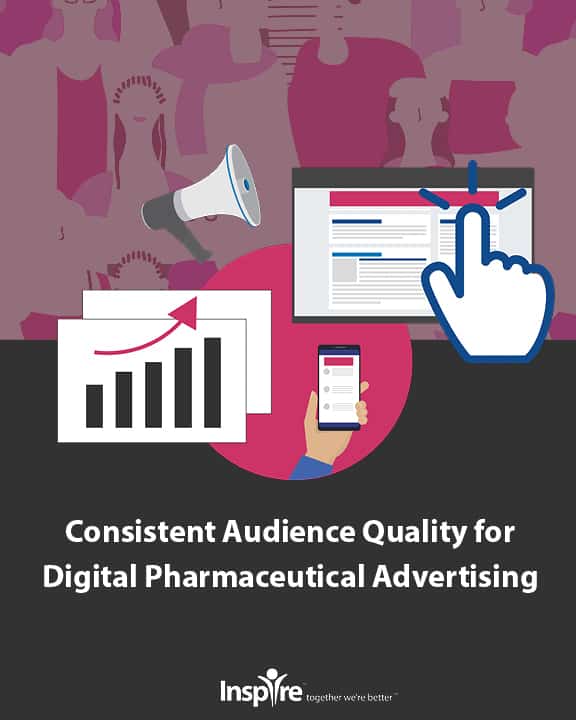The Bladder Cancer Advocacy Network Support Community on Inspire Talks about Treatments

By Kathleen Hoffman, PhD, MSPH
If asked to list the most common cancers in the U.S., most people would include breast, lung, skin, and prostate cancers. So you may be surprised to learn that the fourth most common cancer among men in the U.S. is bladder cancer.1 The estimate for 2020 is that new cases of bladder cancer will be diagnosed in 81,400 people.1 It’s the sixth most common cancer overall, and while 3 out of 4 cases affect men, women are more likely to have advanced forms.2
As with all cancers, the emotional impact of the diagnosis is compounded by an avalanche of medical terms about tumor types, grades, stages — and treatments. Fortunately, the Bladder Cancer Advocacy Network (bcan.org) partners with Inspire to provide an online support community where patients and caregivers can connect with others impacted by bladder cancer. Treatments are often the topic of conversation.
According to the American Cancer Society, “Surgery, alone or with other treatments, is used to treat most bladder cancers,” and a surgical biopsy called a TURBT (transurethral resection of bladder tumor) is used to confirm a diagnosis.3 Some Inspire community members turn to the community immediately. One member said, “…We got the pathology report today…” and had questions; that member received 26 replies.
The nature of the replies is what makes a health community different. Family and friends may be at a loss, but patients and caregivers further along in the patient journey have information and experience to share. One reply asked, “Did the pathology report state that the tumors are T1 (in the lamina propria)? How many tumors did your husband have, and what size?” Another recommended the BCAN.org web site as a source for basics: “I think you should read BCAN.org if you haven’t already. There is a section for Newly Diagnosed. You need to understand what you have.”
Sometimes, members want to know if their experience is typical or atypical. One post asked, “How fast did your tumor grow or go undiagnosed? What were the first signs? Did your symptoms change?” — and got 38 responses.
Patients and caregivers become “experts by experience,” and the knowledge shared inside a peer-to-peer health community can display impressive clinical sophistication. In a public post titled “CIS with MIBC – intravenous vs intravesical,” one member writes:
I’ve read several NCBI papers, mostly from links you wonderful people have provided (thanks), about treatment of MIBC [muscle-invasive bladder cancer], CIS [cancer in situ], or MIBC+CIS. I’m trying to reconcile what I read with what I hear from doctors, and it isn’t always easy or obvious… 2 oncologists both say that my CIS can be cured by intravenous cisplaten+gemcitabine, or at least that the protocol will incidentally cure the CIS although its primary target is the roots of the T2 tumor. But everything I’ve found online seems to indicate that CIS should be treated intravesically…
Two of the newest forms of treating bladder cancer involve immunotherapy and targeted therapy drugs, both of which are also discussed in the Bladder Cancer Advocacy Network support community on Inspire. Members can learn where others might be receiving these new treatments, and what their experiences are. One member writes, “My partner was just diagnosed with bladder cancer in the lungs… We’re looking for the best facility for immunotherapy treatment as opposed to chemo. Suggestions?” Four responses included detailed instructions on available specialists.
Another member described why he found Inspire and what he learned that helped save him from bladder removal.
I am a survivor of many rounds of BCG when my tumour was found to have reached the “Insitu” stage. MY DOCTORS ALL AGREED THEN..WELL WE WILL HAVE TO GO TO THE BLADDER REMOVAL STEP ! That is when I found this community. Through it I found the only clinically tested/approved next step…[medication name]… [I told my doctor] “I want the [medication name] treatment. I got the OK to proceed through my Doctor
There are over 40,000 members of the Bladder Advocacy Network support community on Inspire who turn to their community to discuss their treatments and ask about their options. Where else can a patient go, day or night, and find peers to talk with about their cancer treatments, under the support of a major advocacy organization? From the newly diagnosed to the long term survivors, the “Treatment Choices” topic in the community is always lively.
Look at our new case study on audience quality.
Inspire offers a trusted community to patients and caregivers. Our goal with this blog, this website and our content is to provide the life science industry access to the true, authentic patient voice. In so doing, we support faithful operationalization of patient-centricity. Take a look at our case studies, eBooks and news outlet coverage.
References:
1https://www.cancer.org/cancer/bladder-cancer/about/key-statistics.html
2https://bcan.org/wp-content/uploads/2018/03/Bladder-Cancer-Signs-Symptoms.pdf
3https://www.cancer.org/cancer/bladder-cancer/treating.html






